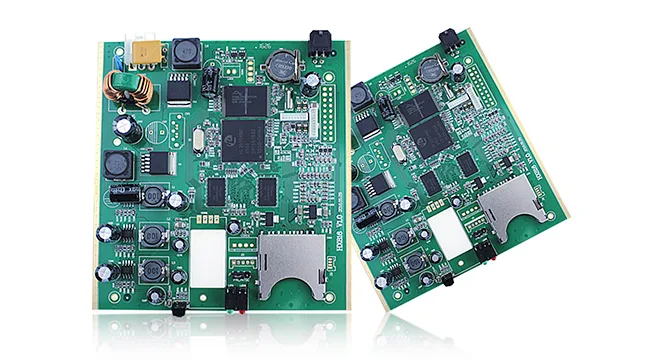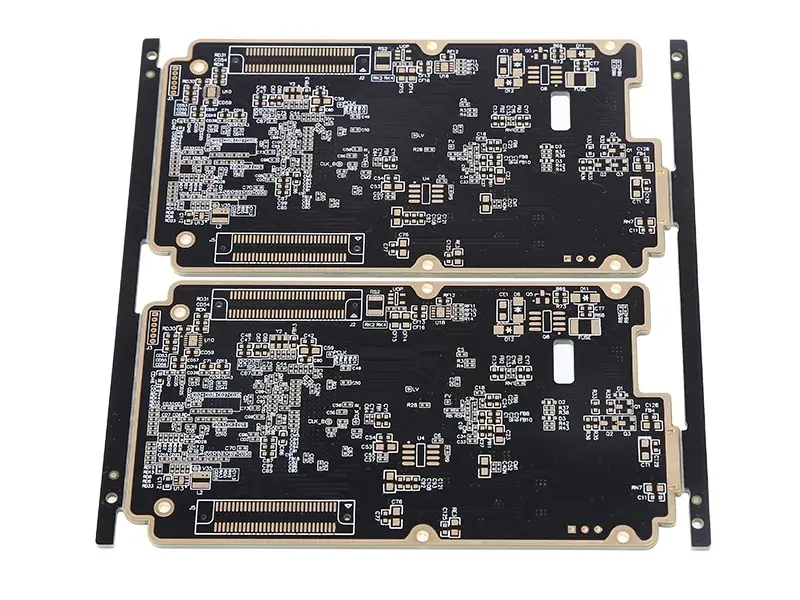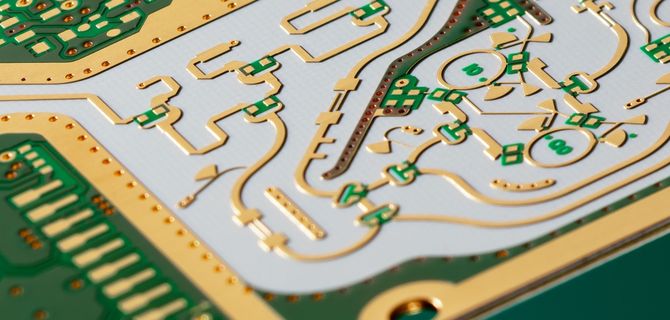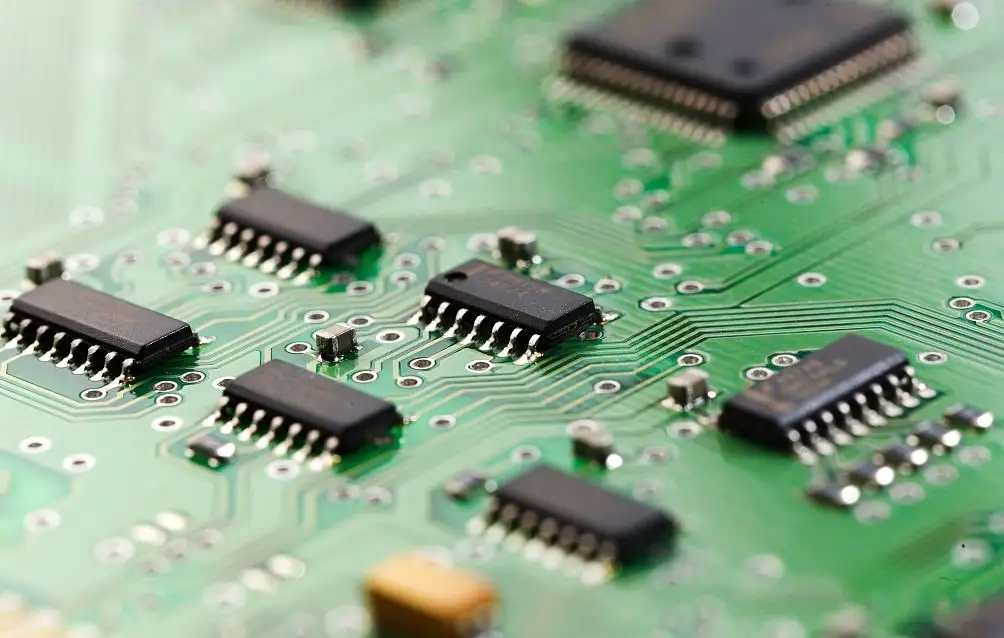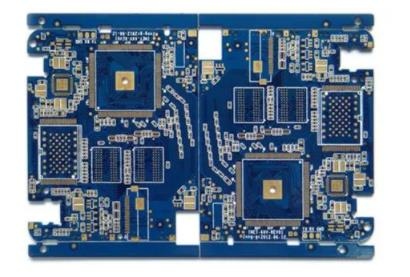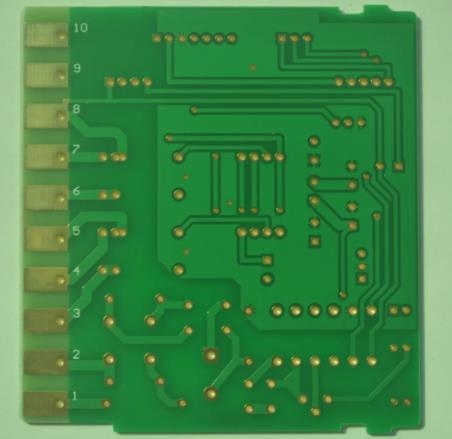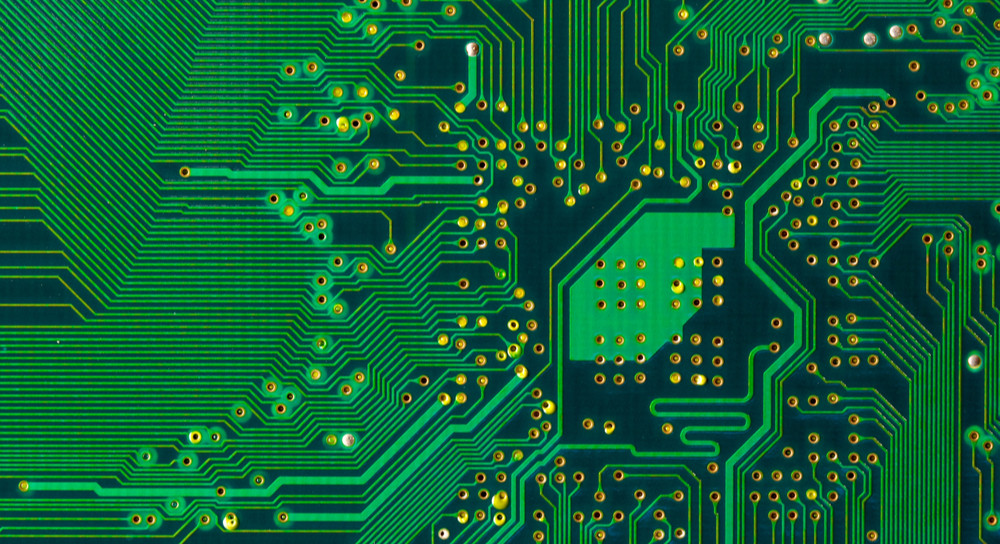
Summarize the anti-statIC measures in PCB design
In the design of PCB board, the anti-static design of PCB can be realized through layering, proper layout and installation In the design process, most design modifications can be limited to adding or reducing components through prediction ESD can be well prevented by adjusting PCB layout and routing Here are some common precautions
1. Try to use multilayer PCB
The common mode impedance and inductive coupling can be reduced to 1/10 of 1/100 double-sided printed circuit boards by grounding the double-sided printed circuit boards, the ground plane and the power plane, and the closely arranged signal lines Try to make each signal layer close to the power layer or ground plane For high-density PCB with components on the top and bottom surfaces, short connecting lines, and many fillers, you can consider using inner layer lines
2. For double-sided PCB, tightly interwoven power supply and grounding grid shall be used.
The power cord shall be close to the ground wire and connected as much as possible between the vertical line and the horizontal line or the filLED area. The grid size on one side is less than or equal to 60mm. If possible, the grid size should be less than 13mm.
Circuit board
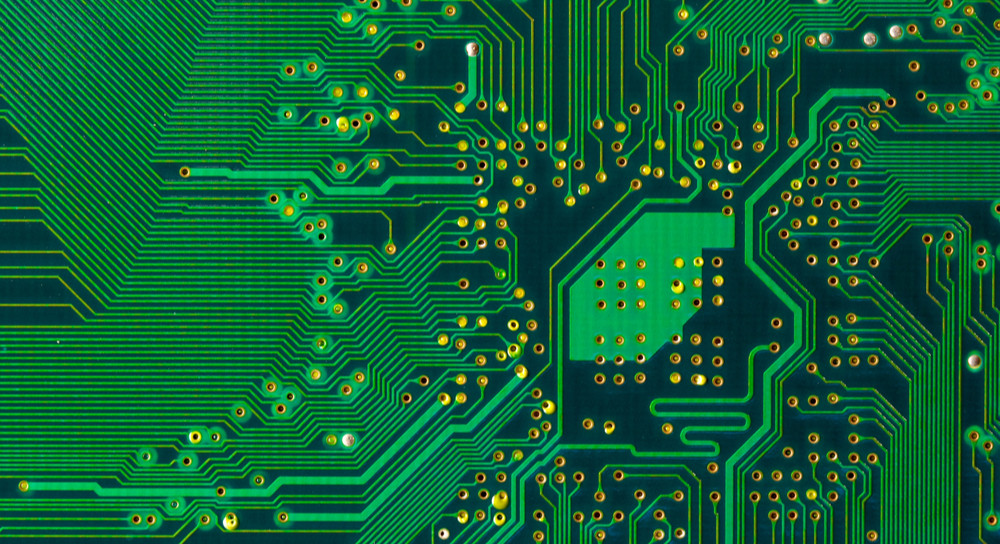
3. Ensure that each circuit is as compact as possible.
4. As far as possible, place all connectors aside.
5. Set the same "isolation zone" between chassis grounding and circuit grounding of each layer; If possible, keep the separation distance 0.64mm.
6. When assembling a PCB, do not use any solder on the top or bottom pads.
Use screws with included washers to achieve close contact between the PCB and the bracket on the metal main housing/mask layer or ground plane.
7. If possible, lead the power cord from the center of the card and keep it away from the area directly affected by electrostatic discharge.
8. On all PCB layers below the connectors connected to the outside of the main housing (vulnerable to electrostatic discharge), place a wide main housing ground or polygon filled ground, and connect it to the via at an interval of about 13mm. in harness
9. Place the mounting hole on the edge of the card, and connect the top and bottom pads without solder blocking around the mounting hole to the main housing for grounding.
10. At the top layer and bottom layer of the card close to the mounting hole, 1.27mm wide wires are used to connect the main housing grounding and circuit grounding every 100mm along the ground wire of the main housing. Place pads or mounting holes for installation between chassis grounding and circuit grounding near these connection points. These ground connections can be cut off with a blade to keep the circuit open, or bridged with a magnetic bead/high-frequency capacitor.
11. If the circuit board is not placed in the metal main housing or the mask device, the top and bottom main housing ground wires of the circuit board should not be applied with solder resist, so that they can be used as the discharge electrode of the ESD arc.
12 Set ring grounding around the circuit with the following pipes:
(1) In addition to the edge connector and chassis grounding, a circular grounding path is placed around the entire perimeter.
(2) Ensure that the width of the ring ground of all layers is greater than 2.5mm.
(3) Ring connection with through hole every 13mm.
(4) Connect the ring ground to the common ground of the multilayer circuit.
(5) For double-sided boards installed in metal enclosures or shielding devices, the ring ground should be connected to the common ground of the circuit. For unshielded double-sided circuits, the ring ground should be connected to the main housing ground. Solder resistance should not be used for ring grounding, so that the ring grounding can be used as an electrostatic discharge rod. Place at least one at a certain position on the 0.5mm wide gap of the annular ground (all layers), so as to avoid forming a large loop. The distance between signal wire and ring grounding shall not be less than 0.5mm.
13. In areas where electrostatic discharge may directly hit, ground wires must be laid near each signal line.
14. The input/output circuit shall be as close to the corresponding connector as possible.
15. Circuits susceptible to ESD shall be placed near the circuit center so that other circuits can provide a certain shielding effect for them.
16. The transient protector is usually placed at the receiving end. Use short and thick wires (the length is less than 5 tiMES the width, preferably less than 3 times the width) to connect to the main housing for grounding. The signal line and ground wire of the connector shall be directly connected to the transient protector, and then connected to other parts of the circuit.
17. Normally, a series resistor and a magnetic bead are placed at the receiving end. For cable drivers that are vulnerable to electrostatic discharge, you can also consider placing a series resistor or magnetic bead on the driver end.
18. Place the filter capacitor at the connector or within 25 mm from the receiving circuit.
(1) Use short and thick wires to connect to the main housing ground or the receiving circuit ground (the length is less than 5 times the width, preferably less than 3 times the width).
(2) The PCB signal line and ground wire are first connected to the capacitor, and then to the receiving circuit.
18. Make sure the PCB signal circuit is as short as possible
19. When the length of signal line is greater than 300mm, the ground wire must be laid in parallel.
20. Ensure that the loop area between the PCB signal line and the corresponding loop is as SMAll as possible. For long signal lines, PCB signal lines and ground wires must be switched every few centimeters to reduce the loop area.
21. Drive signals from the network center to multiple receiving PCB circuits.
22. If possible, fill unused areas with land, and keep the filled ground of each layer 60mm apart.
留下您的评论
您的电子邮件地址不会被泄露。
然后
联系
电话热线
13410863085Q Q

微信

- 邮箱

